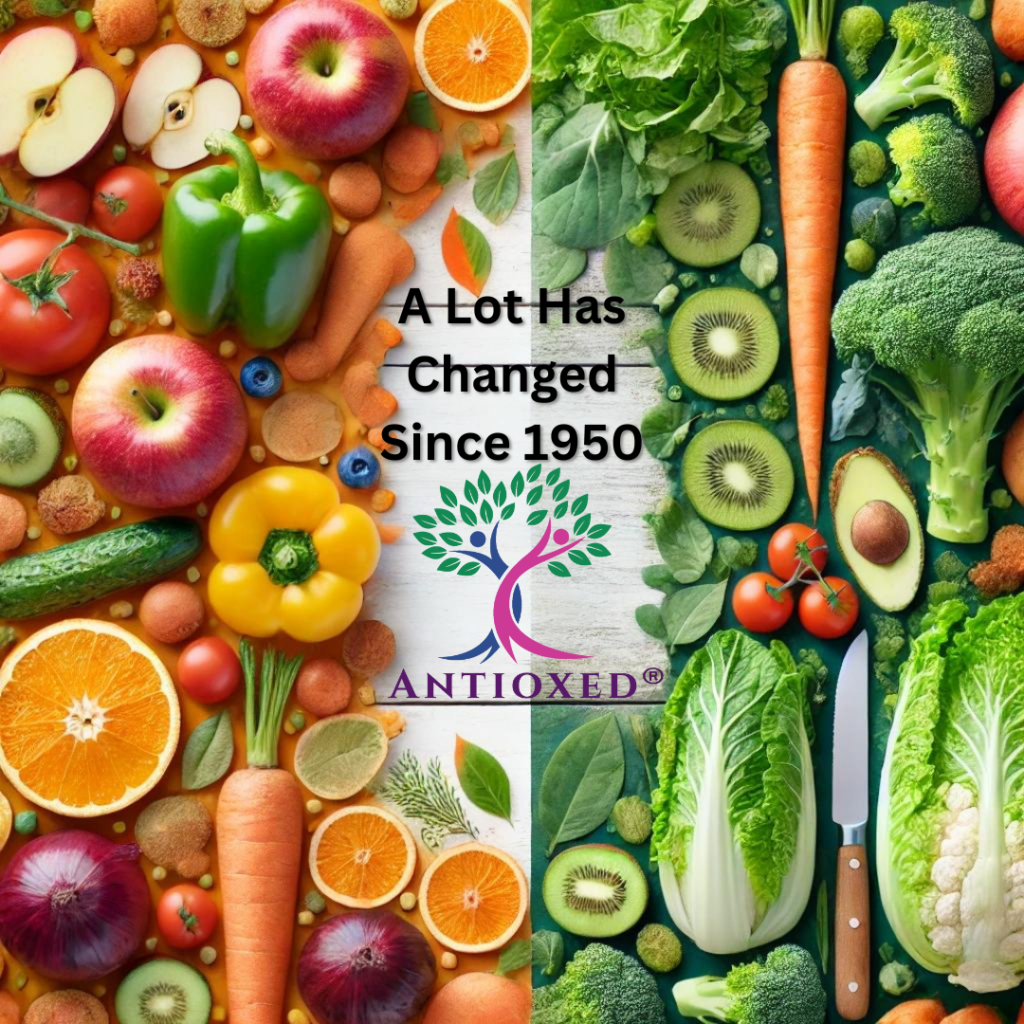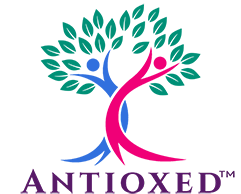The Decline of Nutrients in Our Fruits and Vegetables:
- Antioxed
- December 15, 2024
🍅 What You Need to Know 🥕
Have you ever wondered if the fruits and vegetables you eat today are as nutritious as those your grandparents consumed? You’re not alone! Unfortunately, the answer might disappoint you. Research over the years has shown a significant decline in the nutrient content of our produce since the 1950s.
What does this mean? Many of the fruits and vegetables we consider “healthy staples” no longer pack the same punch of vitamins and minerals they once did.
📉 The Numbers Don’t Lie
- 👎 A University of Texas study revealed steep declines in essential nutrients like protein, calcium, phosphorus, iron, riboflavin (vitamin B2), and vitamin C across 43 different fruits and vegetables between 1950 and 1999.
- 😟 The Kushi Institute examined data from 12 fresh vegetables from 1975 to 1997 and found that:
- Calcium dropped by 27%,
- Iron fell by 37%,
- Vitamin A declined by 21%, and
- Vitamin C dropped by 30%. 🍊
- 🍎 A 2017 study by the American College of Nutrition observed further reductions in key nutrients, especially in vitamins C, B6, and E, as well as minerals like magnesium and zinc. Common crops like tomatoes, potatoes, and lettuce showed a noticeable drop in nutrient density since 1999.
🤔 Why Is This Happening?
So why are our fruits and vegetables losing their nutritional value? The answer lies in several factors:
- Soil Depletion:
Modern farming practices often prioritize quantity over quality. Intensive agriculture and reduced crop rotation have stripped the soil of essential nutrients, leaving plants with less to absorb. - Selective Breeding:
To meet demand, crops are bred for traits like higher yields, pest resistance, and faster growth. Unfortunately, these priorities often come at the expense of nutrient density. - Environmental Factors:
Climate change, air pollution, and contaminated water sources may also play a role in reducing the nutrient content of crops.
💪 What Can You Do?
While the decline in nutrient density might seem disheartening, there are actionable steps you can take to ensure you and your family get the nutrients you need:
- Buy Local and Organic:
Locally grown, organic produce often comes from farms that prioritize soil health and sustainable practices, resulting in more nutritious crops. - Diversify Your Diet:
Eating a wide variety of fruits and vegetables ensures you get a broader range of nutrients, even if individual crops are less nutrient-dense than they once were. - Supplementation:
Incorporating a high-quality supplement like Antioxed into your routine can bridge the nutritional gap. Our clean, robust formula includes 27 essential vitamins and minerals, giving you 100% or more of the recommended daily intake for most nutrients.
At Antioxed, we’re passionate about helping you reclaim your health. With the decline in nutrients in our produce, supplementation is no longer just an option—it’s a necessity. Let us help you stay ahead of the curve with science-backed nutrition that’s designed to empower your life.
🥗 Add to Your Life!
Explore the full potential of Antioxed’s all-in-one supplement today.



